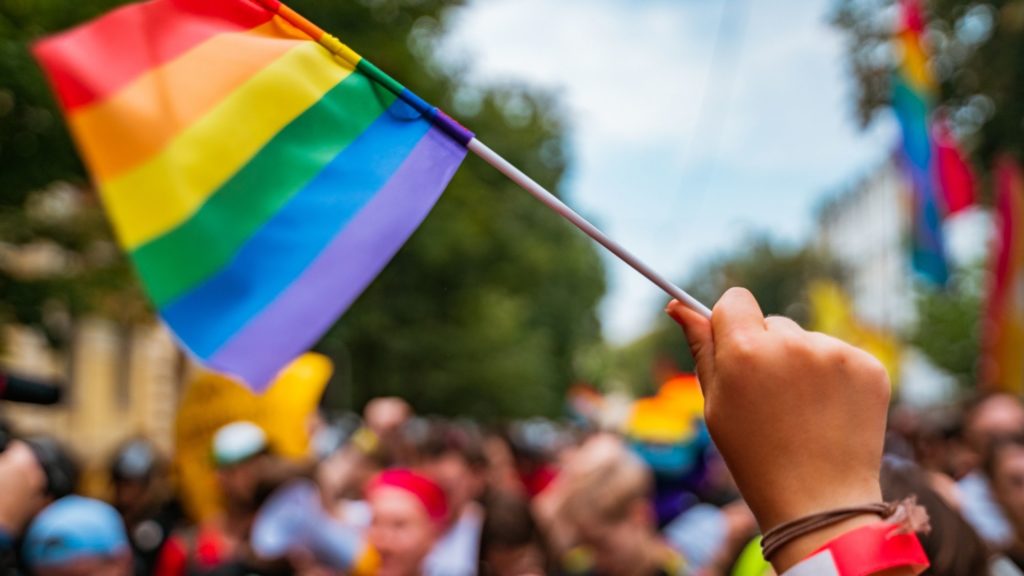Coming out is a rite of passage for members of the LGBTQ community. But what if it were more than just a milestone?
That’s the question researchers at the University of Montreal wanted to answer in their 2013 study, “Health benefits of coming out of the closet demonstrated.”
By looking at self-reported anxiety questionnaires, stress hormone levels and biological markers like blood pressure and insulin, the researchers found that lesbians, gays and bisexuals who were out had lower levels of the stress hormone cortisol. In addition, they reported fewer symptoms of anxiety, depression and burnout than those who were closeted.
Put simply, being out is better for physical and mental health.
But what explains these findings? In honor of National Coming Out Day on October 11th, we dive into why being out is better for LGBTQ mental health.
- Coming out can reduce anxiety and depression
Coming out, as the University of Montreal study showed, is correlated with lower levels of anxiety and depression.

While the study’s authors didn’t try to explain why people who are out have better mental health, it is possible to make some hypotheses based on other research.
Anyone who’s been in the closet knows it’s a nerve-wracking experience. There’s the fear of being found out, the fear of being rejected by friends or family and the fear of being judged, just to name a few.
This constant long-term anxiety has been correlated with panic attacks and depression. It stands to reason that being out alleviates, or at least reduces, some of these fears.
Another aspect of being in the closet is having to lie— not only about sexual orientation or gender identity, but also about interests, activities and romantic partners. As is often the case, one lie leads to another. Keeping them all straight requires an enormous mental effort and contributes to feelings of anxiety.
But closeted LGBTQ people don’t just lie about what they like and how they spend their time. Often, they lie in order to avoid the emotions and challenges of being part of a sexual and/or gender minority. In many cases, this also leads to anxiety and depression.
On the other hand, coming out means freedom from lying. Some even liken it to removing a heavy burden.
- Coming out is empowering
There’s a reason it’s called being “in the closet” and not “in the roomy four-bedroom, three-bathroom penthouse.” Concealing sexual and/or gender identity is a restrictive, isolating experience.
Indeed, LGBTQ people liken the experience of being in the closet to feeling trapped, blocked in or wearing a mask. Others say it’s constantly having to put on an act or feeling like they’re impersonating someone.
Whereas staying in the closet means living life according to other peoples’ rules, coming out is an opportunity for LGBTQ people to be 100% clear about who they are and how they want to live their lives.
Having the confidence to live life authentically is perhaps the most empowering thing someone can do. And that’s good news for LGBTQ mental health. In fact, research shows a correlation between feeling empowered and better mental health outcomes.

- Coming out means finding an authentic sense of self
Many LGBTQ people go through periods of denying or ignoring their sexual orientation and/or gender identity. While the reasons are complex, internalized homophobia, shame and fear are often cited as explanations.
As a result of these perceptions, having homoerotic feelings, attractions and fantasies becomes so unacceptable and terrifying that these thoughts are kept out of conscious awareness. By selectively ignoring the threatening parts of one’s identity, life is more manageable—at least in the short-term.
In the long-term, keeping such a central part of one’s identity hidden or separated becomes painful. In fact, research shows that hiding sexual orientation or gender identity makes it more difficult to recognize personal strengths and to feel ownership over accomplishments, both of which are correlated with poorer self-esteem.
Conversely, coming out means understanding one’s true identity. Indeed, people who come out say it’s like “coming home” or like “making contact with the true self.” But it’s more than just accepting oneself. Rather, research shows that living according to one’s true self is the key to a happy and meaningful life.
- Coming out builds community

In years past, living in the closet meant feeling isolated and alone. Thankfully, the spread of social media has made it easier for LGBTQ people to interact with members of the community, even if they’re not out to their inner circle.
Connecting with people—if only virtually—who have similar experiences, values and interests builds trust and confidence. What’s more, these people can become a support system. Having a support system is key to feeling accepted, respected and valued, all of which contribute to better LGBTQ mental health outcomes.
Coming Out and Substance Abuse
While coming out can be a liberating experience that results in more positive LGBTQ mental health outcomes, it can also be one of the most devastating experiences when followed by rejection.
In some cases, LGBTQ people may turn to drugs (prescription or illegal) or alcohol to cover up the emotional pain from a negative coming out experience. In addition, a coming out that results in loss of familial and friend support can have serious mental health consequences that contribute to depression and substance abuse.
Come As You Are at La Fuente Hollywood Treatment Center
As one of the nation’s only LGBTQ-specific treatment centers, we know how difficult coming out can be, especially if your friends and family don’t take the news well.
While coming out is one of the most defining moments in an LGBTQ person’s life, we recognize it’s just one of the many unique challenges our community faces. We’re here to help you feel proud of your LGBTQ identity and to cope with daily stressors that drive substance abuse.
At La Fuente Hollywood Treatment Center, we’ve created a community of LGBTQ people who share the same challenges and experiences as you. We pride ourselves on being judgment-free and we invite all of our patients to show up as they are. Our facility is more than just a building—it’s a community built on security and acceptance, both of which are essential for treatment and healing.
So if you or someone you know is struggling with substance abuse, then contact us now and let’s start your recovery journey.

[contact-form-7 id=”14454″ title=”Treatment Contact Form”]




